Podcast: Play in new window | Download
Subscribe: Apple Podcasts | Spotify | RSS
Produced by Jeffrey Crecelius, Wayne Hall and Preston Frazier

It’s been a week for thinking deeply…or maybe not. Anyway, Mark and I have been listening to the oft maligned sides 2 and 3 of Tales from Topographic Oceans which have not been played as often as sides 1 and 4. Why not I hear you cry. Or maybe I don’t. In any case, that’s what we will be banging on about in this episode
- Why abandon sides 2 and 3?
- Are they really that bad?
- What was it like to be an early audience member?
Listen to the episode and let us know what you think!
This is the recording we listened to:
Join us as a Patron!
If you would like to support the Yes Music Podcast financially and also have access to exclusive activity and opportunities, there is a special page you can use to sign up and 2020 is the time to join us:
Bag yourself a fabulous piece of YMP history before it’s too late…
Head over to the YMP Emporium to…
- Pre-order a YMP Trivia Card Game ‘The Answer Is Yes!’ – going into production very soon
- Order the unique Full Union art print – available now
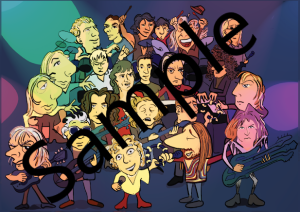
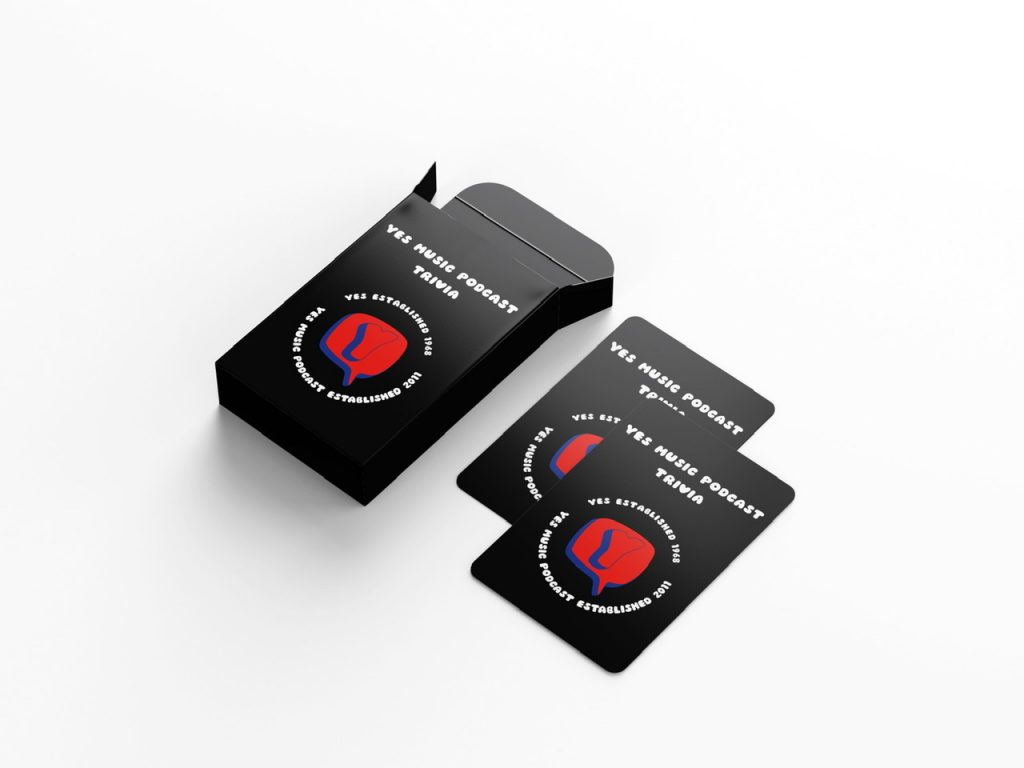
Show notes and links:
An extract from the new box set of ‘Return’ in which Rick mentions Nic:
Join us in August to record episode 500 here:
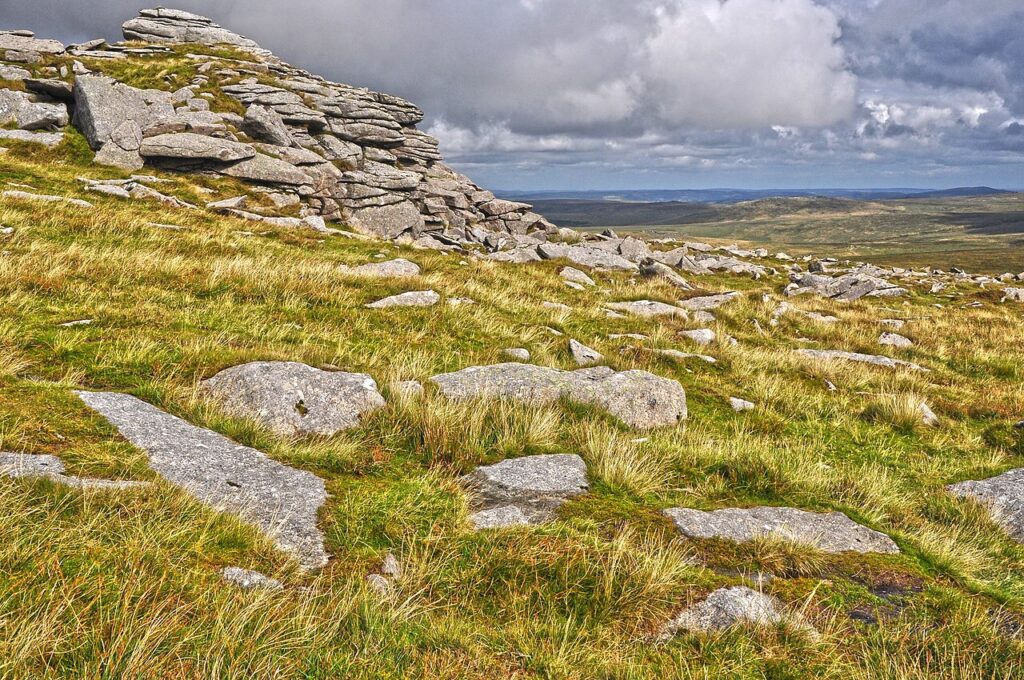
Lots more details to follow…
YMP Patrons:
Producers:
- Jeffrey Crecelius
- Preston Frazier and
- Wayne Hall
Patrons:
| Aaron Steelman | Dave Owen |
| Mark James Lang | Paul Tomei |
| Joost Maglev | David Heyden |
| Martin Kjellberg | Paul Wilson |
| Bob Martilotta | Lind |
| Michael O’Connor | William Hayes |
| Brian Sullivan | David Pannell |
| Miguel Falcão | Lobate Scarp |
| Chris Bandini | David Watkinson |
| Neal Kaforey | Rachel Hadaway |
| Craig Estenes | Dem |
| Paul Hailes | Mark ‘Zarkol’ Baggs |
| Doug Curran | Robert Nasir |
| Fergus Cubbage | Scott Colombo |
| Fred Barringer | Scott Smith |
| Geoff Bailie | Simon Barrow |
| Geoffrey Mason | Stephen Lambe |
| Guy R DeRome | Steve Dill |
| Henrik Antonsson | Steve Perry |
| Hogne Bø Pettersen | Steve Rode |
| IanNB | Steve Scott |
| Jamie McQuinn | Steven Roehr |
| Ken Fuller | Terence Sadler |
| Michael Handerhan | Tim Stannard |
| Jim | Todd Dudley |
| John Cowan | Tony Handley |
| John Holden | Joseph Cottrell |
| John Parry | Keith Hoisington |
| John Thomson | Barry Gorsky |
| Alan Begg | |
Robert and David
Please subscribe!
If you are still listening to the podcast on the website, please consider subscribing so you don’t risk missing anything:


Subscribe on Android
Listen on Stitcher
Theme music
The music I use is the last movement of Stravinsky’s Firebird Suite. This has been used as introduction music at many Yes concerts. My theme music is not take from a live concert – I put it together from the following two creative commons sources: thanvannispen and archive.org
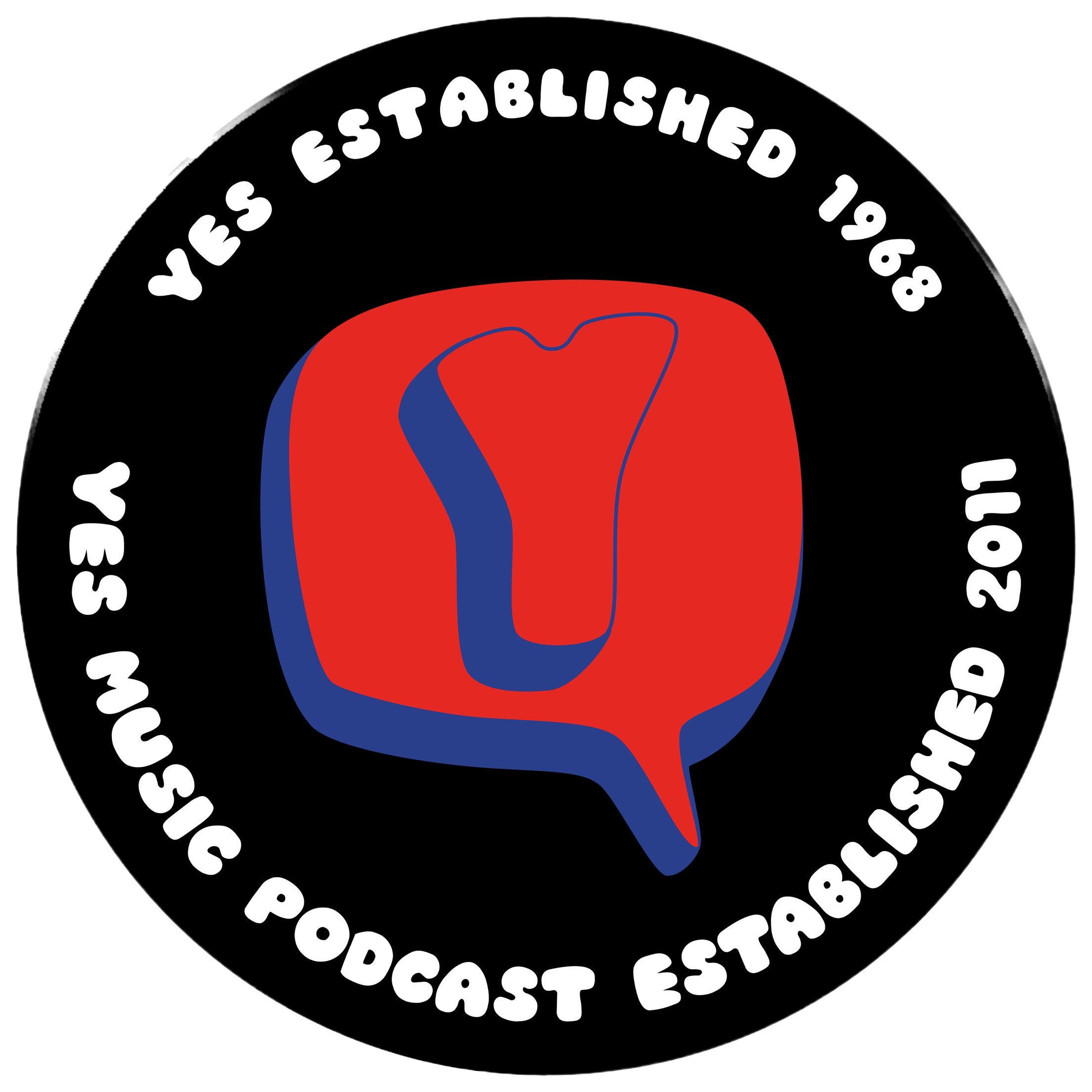
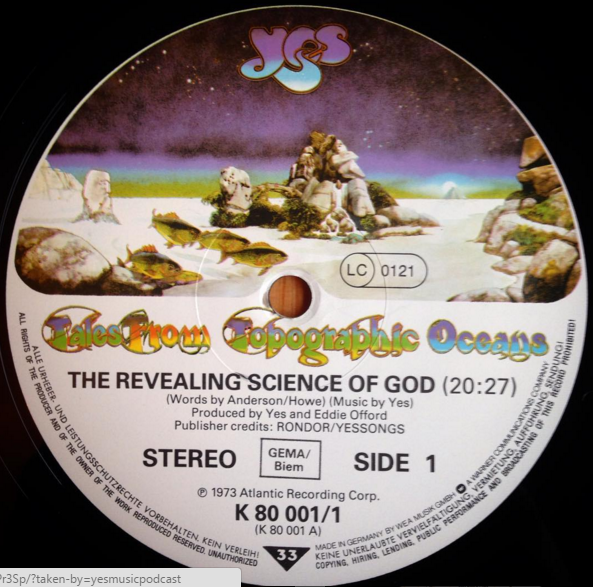
19 replies on “Why did Yes stop playing sides 2 and 3 of Tales From Topographic Oceans? 478”
“The Ancient” was my immediate favorite track when I heard the album in mid 1975 for the first time. If you don’t like it, you probably only like harmonic music and not dissonant music, and you definitely don’t like unpredictable music. Ironically, you also don’t like The Remembering which is ALL harmonic and easy listening, but because it is mellow and ambient is why some rock music fans don’t like it– because it is majority without a conventional rock rhythm section. I got into The Remembering as I got more into meditation and more contemplative music. It’s because these two songs are so far outside the bounds of conventional rock, even conventional prog, that they are my favorites. I prefer the more adventurous tracks on prog albums. (Sadly, you’re also missing the incredible percussion arrangement on “The Ancient” which underscores the experimental section.) To me, it would have been boring if Yes stuck to a formula for their epics. The closest they ever came to a formula for epics are “Close to the Edge” and “Awaken.” The latter pretty much copies the template of the former. “The Ancient” is so far outside the bounds of rock that the only thing you can compare it to is Stravinsky’s “The Rite of Spring” when he and the choreographer Nijinksy freaked everyone out with this new radical style.
Just to be clear, as far as the actual Tales tour goes, The Ancient was dropped only rarely. It was played throughout the tour, including the last show, in Rome, Apr 23 1974
Hi Guys
Just listened to your comments on episode 478 and I feel compelled to give you my thoughts. I was at one of the December 1973 shows in Glasgow when they played the complete four tracks of Tales. It was my first time seeing the band and I was super excited as were my friends. It’s really hard to remember all the details from almost 50 years ago but I do not recall the audience being unhappy with the length of the new material (I believe the album was released on the day of the second concert). Glasgow audiences are notorious for having little patience with performers who can’t cut the mustard, so I think I would have remembered if they’d got rowdy.
Of course Mr Wakeman kept the mood jovial, turning up on stage in a kilt plus cape and I believe this was the gig where he decided to have a take away curry perched on his keyboards in order to provide him with a focus when he got bored.
I personally love the complete work and, sorry Mark, but The Ancient with all its “drunken” slide guitar is fine by me. Having said this, I totally agree that had Tales been released with just sides 1 and 4 it would undoubtedly have had greater success and much less criticism. If that was released today, the band could follow Transatlantic’s example and also have “Tales The Ultimate version” released with all four tracks.
I suspect that if I had to sit thru 80 minutes of new, difficult, music, I might have grumbled as well. What if Yes had taken just side 1 & 4 to make the single disc album, then saved some of the best riffs and themes from 2 & 3 to create one or two shorter songs for their next album. Perhaps the album could have included more material to Rick’s liking and maybe he would have stuck around… Interesting, but I am hesitant to speculate on any circumstances that might have led to Relayer (Yes’ most perfect album) becoming something different.
Never felt so in disagreement with your opinions, which are as legitimate as mine are! It is often said that to get into Yes, you have to open your mind, and that Yes fans have this capacity. To hear Tales, it requires more than that, and not all Yes fans have the same “openness”.
Tales From Topographic Oceans has to be listened with yet more attention and pre-disposition, than we do with Roundabout or Close To The Edge. Yes it also requires available time, something that becomes more and more difficult to have nowadays. It is a record that will transport you to places, if you are in no hurry to hear Roundabout, like some of the fans shouted.
As Sun Fellow said, there are many details of the music itself that seemed to be forgotten in these reviews. The percussion arrangement of The Ancient, the vocal harmonies on The remembering, with the magical landscapes provided by Rick’s washes of Mellotron and Mini Moog. Did you know that Chris Squire, once asked which was the best bass line he ever composed, replied “The Remembering”, adding that he was really happy how he arranged that part, yet people would always come and brag him about Roundabout.
As Yes fans, we tend to think – “we are different, the others are cliché” and yet, inside Yes, we establish our own Yes clichés. I, as a recent fan, was once “taught” that 1-Everybody hated drama, 2-Everybody disliked Tormato and 3-Tales is long boring.
Also, some of the members interviews contribute to the establishment of those notions… “Tales has lot of padding”, “should be just side 1 and 4”, “Rick was eating curry…” … Many fans incorporate (unconsciously or not) those statements into their own opinions.
I can be also very critic to a Yes song. Sure there are some that I can joke around with friends and say “I hate it” , “it’s so boring”, or “It’s awful”, perhaps I wouldn’t make such statement in a public podcast, because it can be interpreted wrong – because in reality we love this band and I can say that even the songs I may find “awful” or weaker, I have love for them.
When I thought about doing my bass cover videos from Tales, I chose exactly sides 2 and 3, having the notion that those are songs that have the less love and attention. I found fabulous sounds, not only bass sounds, by studying both songs. Those songs need attention, openness, and they will reward you – if you can get there.
Tales Topographic Oceans makes sense as it is – As any Yes release makes its sense as it is. Does not require mutilation of tracks, re-arrangement of the track order or new mixes.
I don’t think it is a case of 1&4 being vastly superior to sides 2&3.
There is a very decent 45-50 minute record straining to get out of these four sides but the problem is that it is heavily padded throughout, particularly with tokenistic repetitions of whole sections of music (as is the title track of Close to the Edge for that matter), meaningless breakdown sections, naff faux folk songs in the now familiar Anderson style, poorly executed and underwritten jazz fusion passages and some rather aimless and uninspired / uninspiring soloing from Squire and Howe (though not Alan White whose contributions are mostly powerful).
Listening back now to say “Inner Mounting Flame”, “Caravanserai”, Tony Williams’ “Emergency” and even one of the more average Fairports albums of the period will quickly illustrate the many problems they are having meeting the folk rock and jazz rock genres even halfway.
That said, having been at QPR, NSDS will always hold a special place in my heart. It is probably the strongest 20 minutes in the set and has by far the best acoustic section and most memorable main guitar theme. Even then it would have benefitted from a prune and my love of that particular piece is as much about the visual / theatrical aspects of that presentation as the music. Also Patrick Moraz adds plenty that isn’t on the recorded version.
Where they were to get these things spectacularly right in And You & I and Awaken there are more musical ideas in each of those two compositions than in any of the 4 sides of TFTO yet with a fraction of the performance time. The difference is of course scrupulous editing and perhaps less of a need to incorporate everyone’s ideas to keep the peace.
On the upside this process seems to have given them enough of a grounding to produce Gates of Delirium and Sound Chaser without any of the issues that plague TFTO. Profiled as a transitional album between two different approaches to long form composition maybe it finds a less divisive place in the catalogue.
I very much resonate with Miguel’s comments on pre-conceived or published notions about this taking hold (drama/tormato/tales comments). As an example, I avoid reviews of any kind – movies, music, plays, what have you. Reviews provide a shortcut that robs people of direct experience, and there hasn’t yet been a reviewer that shares my views. Reviews, gossip, rumor and politics all share a core root of some of the worst of humanity, and I try my hardest to steer clear of things that are focused on them.
I very much enjoy, however, a community where opinions are shared between fans (such as YMP). Once someone has experienced something, then I welcome people’s praising, bashing, or what have you. I guess it’s mostly about taking effort to have these conversations after the experience so as not to manipulate or color the experience itself.
Had I head these opinions about union, or drama, or tormato or tales… I definitely would have had a different experience, and boy am I glad there was no internet back then.
re: bands who put whole albums to concert — Steven Wilson (and his previous band Porcupine tree) are big on this. And I love it. I love the concert re-creation of a highly produced work and the continuity of a concept album being preserved in a live format. For those bands who put a lot of work into the album as a format (Steven Wilson, Yes, Moody Blues), to have that energy, pattern and flow re-birthed with live verve is something to behold.
I also agree that it’s not a problem playing whole albums live. It’s a good exercise to review that it happened with Close To The Edge or Relayer, according to the YMP with more success. What could be also said was that these are 40-ish minute albums, and Tales is an 80 minute double album, thus it fill the double of the time, and yes, probably, like any audience, some were more anxious to hear the well known songs.
I’d like to add a mention to the Talk album – that was the last time that Yes presented the whole (ok, minus State of Play) album – Although Talk received a lot of bashing (remembering Wayne’s comment, there was already the thing called internet), I don’t recall hearing criticism about playing too many of the whole album – on the contrary, in the subsequent albums, I heard more criticism for the band playing fewer newer songs and more of the (same) old classics.
I could write in defence of “The Remembering” and “The Ancient”, but I see others already have. Their relative under-representation in the last quarter century of Yes live activity has sharped my hunger for them, is all I’ll add.
Instead I’ll say that playing all of your new album live as soon as it’s been released is far from a rarity. Yes did it for every album from CTTE to GFTO, and all that makes TFTO stand out as the most stubborn statement of intent is that it was presented in sequence and undiluted with safe cuts.
Most of Yes’s progressive peers have done this as well:
Genesis – The Lamb Lies Down of Broadway
Pink Floyd – The Dark Side of the Moon, and later The Wall
Rush – Clockwork Angels (one short track omitted)
Camel – The Snow Goose
Marillion – Brave
The exceptions seem to be King Crimson and ELP.
It’s a rite of passage, I think. These bands reach a degree of confidence that they trust their new material to speak for itself. Rush’s “Clockwork Angels” is a late outlier in my list and it’s hard to imagine artists delivering an entire new release as a monolith to an audience in these days of mobile and internet eroded attention.
Wouldn’t to be great if Yes felt so confident in their next album that they walked on a played it from beginning to end as the opening half of their next tour? Before the interval, we could stand and applaud their continued existence, their creativity and their self-belief.
I saw the Tormato Tour before the album release. I was excited to hear brand new music live and was not disappointed.
Kevin and Mark, you two spouted utter nonsense for most of this episode. All I can agree with is what Mark said about Steve’s steel guitar on “the Ancient”. Do you both have cloth ears? These two pieces are superb. At one point I thought that The Remembering was my favourite part of this work.
In any case this is a progressive rock concept album to beset as a whole piece. Like a symphonic project in four movements, moving forward through different soundscapes to a resolution. OK it’s hardly Beethoven, Brahms or Mahler but these guys were putting it out there.
Would you go to a concert just to hear the first and last movements of a symphony? The trouble with your review is that neither of you treat it as a piece of its time. You are more influenced by the critics than the music. Still, given that your favourite bands are Queen and Kiss respectively, I take your comments in that context.
Tales is a tour de force full stop.
As for the question of them playing it in its entirety on as tour to promote it? Really? They did the same with CTTE, Relayer, GFTO. I think they played all of Tormato though I don’t remember Madrigal. Drama too if I remember correctly.
I see from the comments above that I’m not the only one just as my comments on the show about Keys (ep 471) seemed to be reflected by others. So this time you can’t single me out haha.
Anyway, keep up with the controversial remarks, I love a good rant and still love you two revisionists.
Interesting episode and comments guys! For me, The Ancient is one of the very few Yes tracks which, no matter how many times I try, I just can’t get into. I think I’m in Mark’s camp on this one. By contrast, though, I’ve always loved The Remembering. I agree that it has probably had its detractors over the years largely because it is “ ambient” and atmospheric in large part. And at over 20 minutes it is probably unnecessarily long. But the closing passage ( from “ Ours entranced we surely carry on”) is one of the greatest, most majestic segments of Yes music in the Yes canon, with some of their finest vocal harmonies on glorious display !
Hello everyone. First, good on you, Kevin and Mark, for putting yourselves out there on this one. You’ve riled people up and gotten them to engage. (I’m not on Facebook, but I’m sure you are fielding a lot there as well.)
I like Tales a great deal, but it’s also an album that I put on when working, and often I’ll look up when I hear acoustic guitar and realize its Leaves of Green already and where has the time gone? In other words, I don’t listen to it the way I would listen to Roundabout or Does It Really Happen, or Heart of the Sunrise. That says something about Tales as a live event. I think it would have been a lot in one sitting at a concert, especially if you were stone cold sober. (Maybe a rarity at a 70s Yes concert?)
When I do listen more carefully, as I did after listening to your show, I hear so much interesting music that I don’t really worry that there is some padding (The Remembering) or awkward transitions. I really listen for the bass and drums and how Alan and Chris had forged a powerful relationship. I listen for Steve’s guitar sounds. (I like what he does, even when it is grating, but I know there are people who do not like his tone on Tales or Relayer. Interestingly, I was listening to Mahavishnu Orchestra a couple days earlier, and a light went on for me. And if you don’t like Steve’s sound here, then there is a lot of Fripp-ery that you won’t like either.) For me, Rick’s contributions are less interesting; washes of sound and relatively predictable but of course incredibly well-played parts. And Jon is Jon, earnestly and enchantingly sharing the profundity of his personal experience (and possibly altered states?).
Thanks for stirring us all up!
I’m a huge fan of Steve’s steel guitar work in The Ancient, so much so that I developed a synth version of the sound and made my own recording of the first 9 minutes. The guitars, the Mellotron and Minimoog, and the awesome bass & percussion arrangement all blow my mind. I love the Remembering too, and I’ll be working on it as well. I saw Yes play all 4 sides of Tales in Baltimore, Feb. 1974, I’ll never forget it, still the best concert I’ve ever seen. My Ancient: https://youtu.be/aRdcg5qOOaE
Wow Gordon, this is a remarkable labour of love and a superbly put together video. This must have taken ages to make and that’s just the tracking, let alone working out all of the score. I’ve subscribed to your channel and now am going to look at the rest of what you’ve been doing.
Thank you
Thank you, Jeremy! I keep saying nobody plays the steel guitar like Steve Howe, and The Ancient is the proof. If you think steel guitar should be played the way it’s “supposed” to be played, you can always listen to Hawaiian or country music (or To Be Over). For some people, the way Steve plays it in The Ancient is jarring and dissonant, but I think it’s just beautiful. Technically speaking, it’s not dissonant at all, it’s all scale notes played in different modes. Maybe it’s the piercing tone… but I love that about it! Rite of Spring, for sure!
(and I didn’t mean “you” in particular)
Hi all! First off, thanks for sharing your thoughts and opinions on the album – I always appreciate the podcast! I do, however, feel compelled to reiterate what others have already said about TFTO. It is an amazing piece of music. I am continually fascinated and frustrated as a Yes fan that when Tales is brought up, the discussion oftentimes begins like this, “It has some strong moments, but it’s too long and there is too much padding.” It is as though people assume there is universal agreement that the album is somehow inherently flawed. For a huge fan of it like myself, when people discuss a possible version of the album without sides two and three, it is like discussing editing out the middle eight minutes of “Awaken” or “Close To The Edge.” Tales, to me, is a single piece of brilliant music. What some call “padding,” I call moments of air, breath, space, and beauty. “The Remembering” is a cosmic journey with so many fascinating musical sections (e.g. “Out in the city running free…”, “Don the cap…”, and the brilliant moment after Steve’s solo of, “Stand on hills of long forgotten yesterdays” – it’s stunning stuff). As for side three, I find it to be a percussive, meditative, and transcendental(!) adventure that makes the mind stir with thoughts of the music of our ancestors. Whoa – heavy stuff! There’s my two cents. End rant, and thanks for listening and for making the podcast!
Some random comments: I saw the Tales tour at the Long Beach Arena in California on March 19, 1974. My first Yes concert. My friends and I were already big Yes fans having fully digested Fragile, CttE, and Yessongs. TFTO was a heavier lift. I remember telling one of my friends after a few listens that I was going have to give it some time. It is one of my favorites.
According to Forgotten Yesterdays, that night they played sides 1, 3, and 4 after playing all of CttE. I loved it and I don’t remember the crowd getting bored. I remember some particularly spectacular special effects during the percussion parts of The Ancient. The of the most memorable concerts I have ever seen.
I like both the Ancient and The Remembering, but recognize that sides 1 and 4 are more accessible. It makes sense that those are the ones they bring back live from time to time.